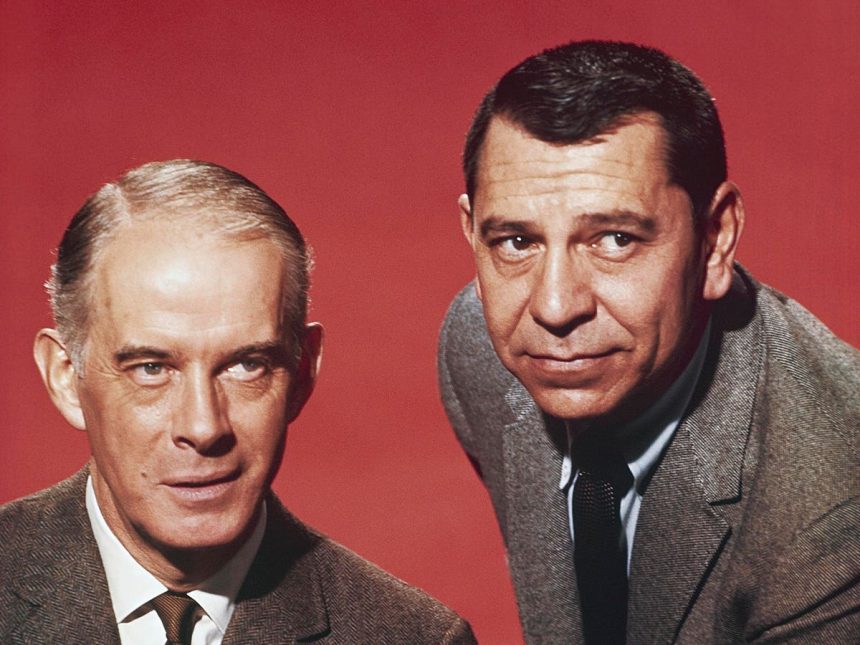The enduring legacy of Dragnet began not on January 12, 1967, the premiere date often associated with the series, but rather on December 14, 1951. This original Dragnet, based on a radio show of the same name and starring Jack Webb as the iconic Sergeant Joe Friday, ran for eight seasons and became a cornerstone of television history, setting the standard for police procedural dramas. While the 1967 premiere marked a reboot of the series, it’s important to recognize the significance of the original Dragnet in shaping the television landscape and establishing the “just the facts, ma’am” ethos that became synonymous with the show. The series drew its inspiration from real police cases, though the narratives were often adapted for dramatic effect. Webb, initially hesitant to reprise his role for television, ultimately agreed under pressure from NBC, giving birth to a television icon and a durable franchise.
The evolution of Dragnet involved several casting changes, particularly regarding Friday’s partner. Barton Yarborough, the original Sergeant Ben Romero, tragically passed away after filming just two episodes. Several actors filled the role temporarily until Ben Alexander joined the cast as Detective Frank Smith, providing a counterpoint to Friday’s stoic demeanor with occasional comedic moments, a dynamic that would later be satirized in the 1987 film adaptation. Though striving for realism in its depiction of police work, Dragnet’s influence extended beyond procedural accuracy; it shaped public perception of law enforcement, a legacy that continues to be debated.
The 1967 reboot, initially titled Dragnet 1967 to distinguish it from its predecessor, marked an early example of a television series being revived in a new format. Harry Morgan, a seasoned actor with prior collaborations with Webb, stepped into the role of Officer Bill Gannon, replacing Alexander who was committed to another project. Morgan, familiar to audiences from various television series, had a history with Webb, having appeared alongside him in several film noir productions and being part of Webb’s stock company of actors on the original Dragnet radio show. This revival solidified Dragnet’s position as a franchise, expanding beyond television into film, books, comics, and a wide range of merchandise.
The Dragnet franchise continued to evolve even after the 1967 reboot concluded its run. Jack Webb, the driving force behind the series, initiated plans for another revival in 1982, intending to cast Kent McCord, a familiar face from another Webb creation, Adam-12. However, Webb’s sudden death put an end to this project, leaving the future of Dragnet uncertain. While this attempt at revival was ultimately unsuccessful, it demonstrated the enduring appeal of the Dragnet concept and Webb’s continued dedication to the franchise.
Despite Webb’s passing, Dragnet found its way back to the screen in 1987, this time as a comedic film starring Dan Aykroyd and Tom Hanks. While Aykroyd’s portrayal of Joe Friday (the nephew of the original character) captured the essence of Webb’s performance, and Harry Morgan returned in a cameo as Captain Gannon, the film diverged significantly from the serious tone of the television series. Nevertheless, the film proved a commercial and critical success, demonstrating the adaptability of the Dragnet concept and its enduring popularity with audiences.
Following the film’s success, Dragnet returned to television in 1989 with The New Dragnet, a syndicated series featuring a new cast and a modernized approach. This iteration, airing alongside a revival of Adam-12, maintained the procedural format but introduced new characters and storylines. Another attempt at revival occurred in 2003, spearheaded by Dick Wolf, the prolific producer behind the Law & Order and Chicago franchises. This version, starring Ed O’Neill as Joe Friday, initially retained the traditional format but later shifted to an ensemble drama under the title L.A. Dragnet. Despite these efforts, neither of these later revivals achieved the same level of success as the original series or the 1967 reboot.
More than two decades have passed since the last Dragnet series aired, but the enduring influence of the franchise remains. Dragnet, in its various iterations, has left an indelible mark on television history, establishing the police procedural as a distinct and popular genre. The series’ commitment to “just the facts” storytelling, its iconic characters, and its realistic (albeit sometimes dramatized) portrayal of police work have solidified its place in popular culture. While the future of Dragnet remains uncertain, the possibility of another revival, in some form, remains open. The enduring appeal of the Dragnet format and the continued fascination with crime stories suggest that the “just the facts, ma’am” approach may once again find its way back to the screen.



